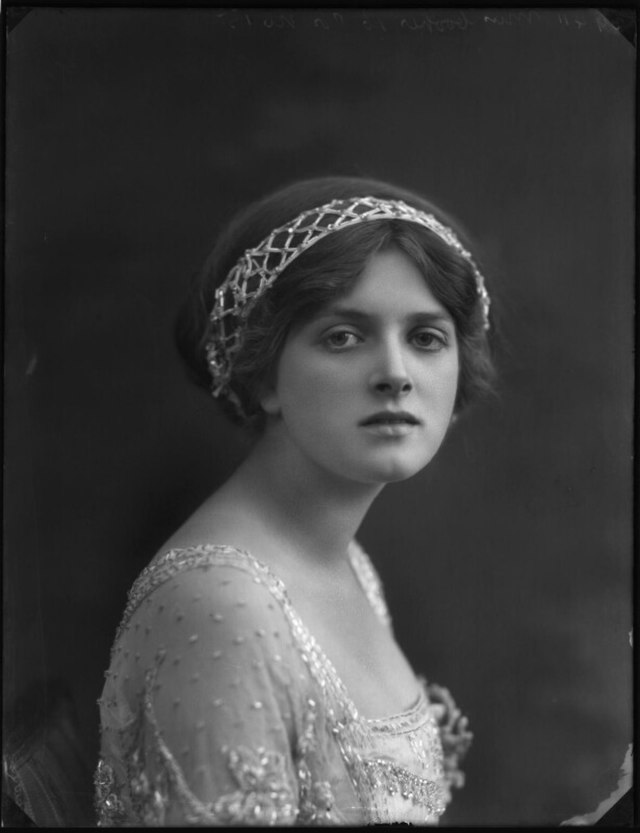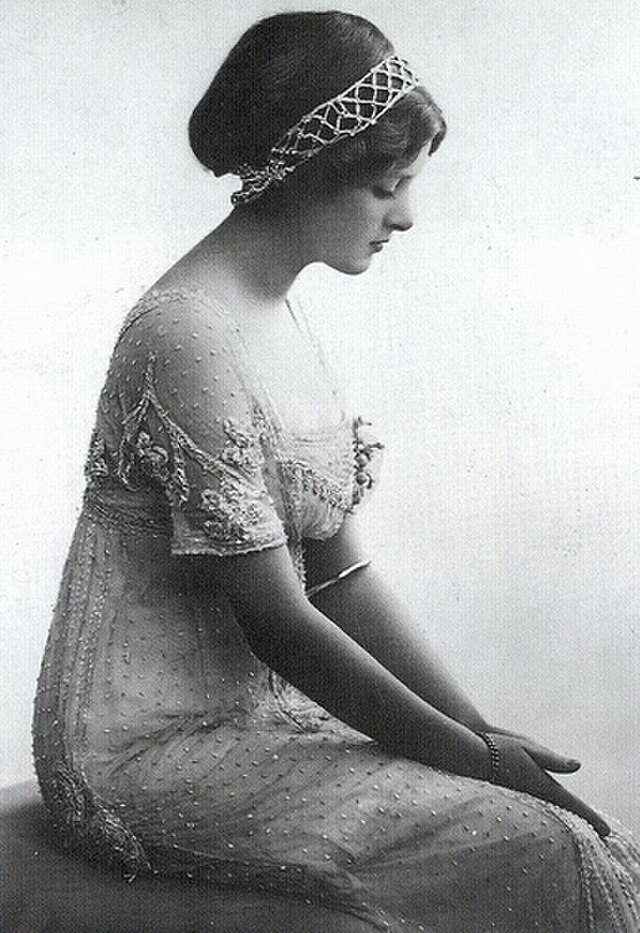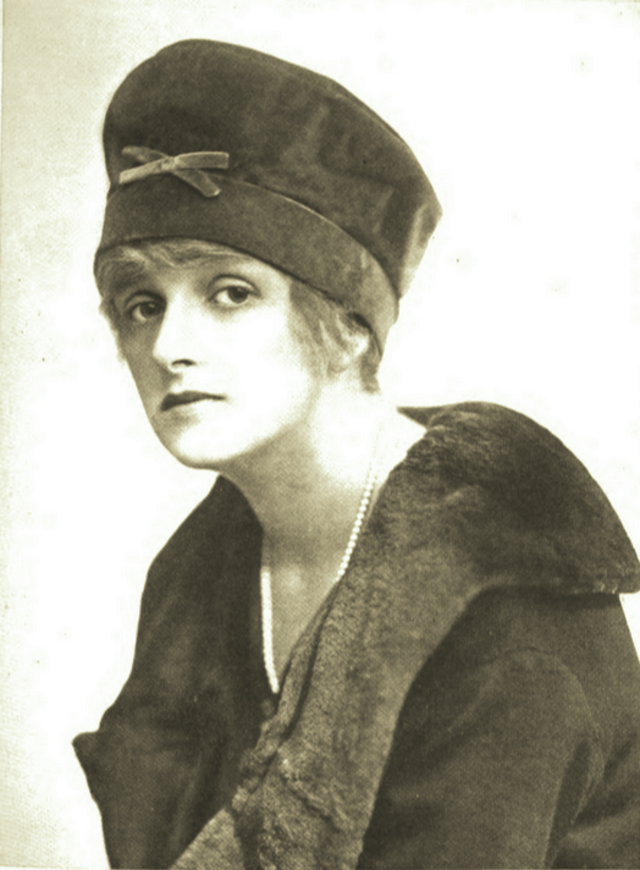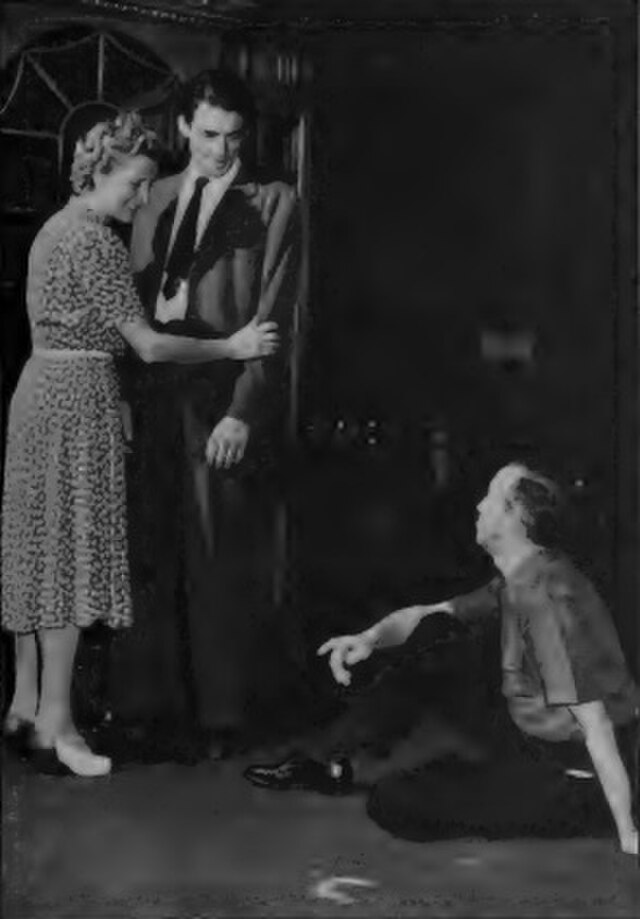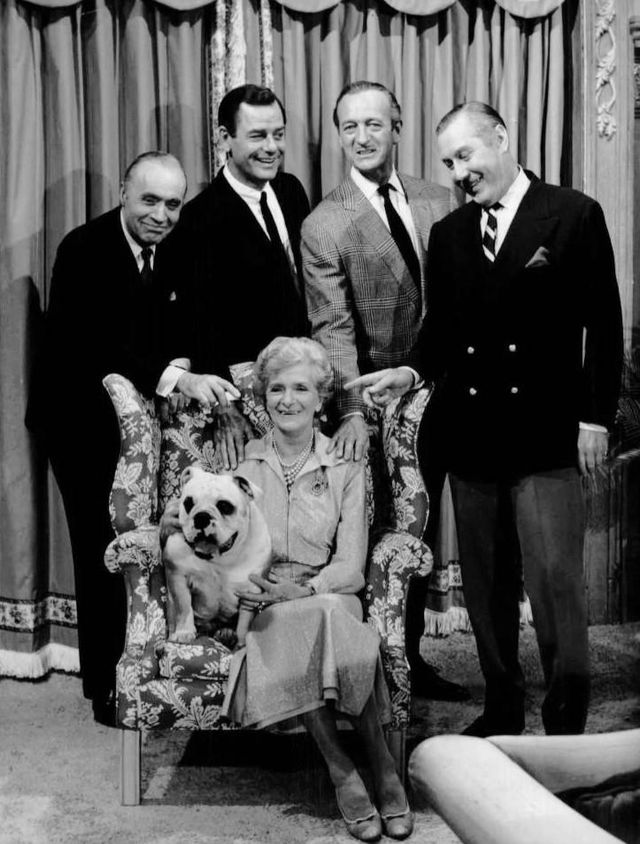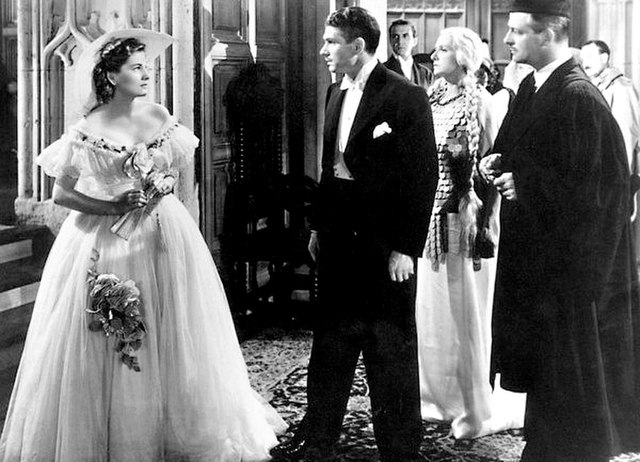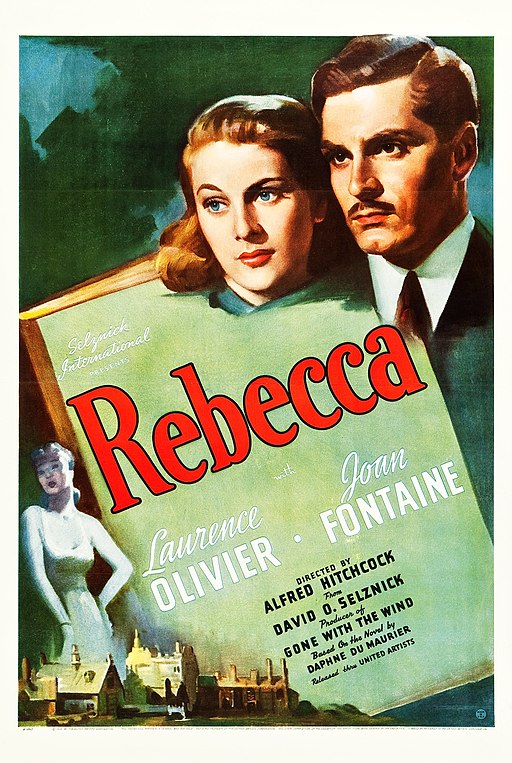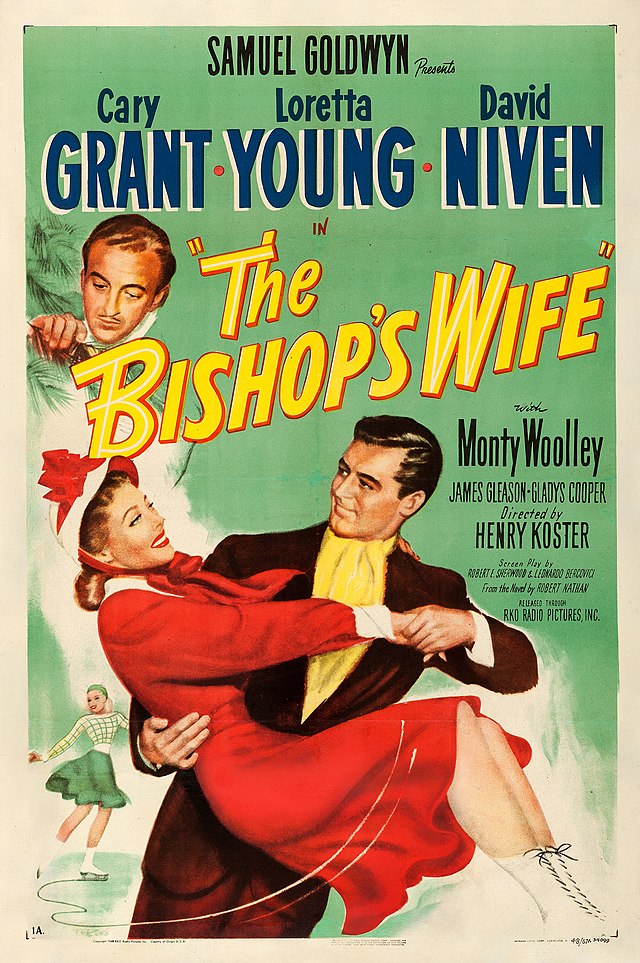Gladys Cooper
back| Full Name | Gladys Constance Cooper |
| Stage Name | Gladys Cooper |
| Born | December 18, 1888 |
| Birthplace | Hither Green, London, England |
| Died | November 17, 1971 |
| Buried | Henley-on-Thames, Oxfordshire, England (in St. James Churchyard) |
| Married to | Captain Herbert John Buckmaster (1908–1921) (divorced) - Sir Neville Pearson (1927–1936) (divorced) - Philip Merivale (1937–1946) (his death) |
| Children | Joan Buckmaster - John Buckmaster - Sally Pearson (stepdaughter from her marriage to Sir Neville Pearson) |
| Notable films | Now, Voyager (1942) - The Song of Bernadette (1943) - My Fair Lady (1964) - The Bishop's Wife (1947) |
Gladys Cooper
The Grand Dame of British Theatre and Cinema
Gladys Cooper (1888–1971) was a distinguished English actress with a career spanning over seven decades, transitioning seamlessly from stage to silent films and eventually becoming a fixture in Hollywood.
Known for her aristocratic poise and emotional subtlety, Cooper earned three Oscar nominations for Now, Voyager (1942), The Song of Bernadette (1943), and My Fair Lady (1964). She often played authoritative, maternal figures with underlying emotional depth.
Related
Gladys Cooper (1888 – 1971)
Biography and Movie Career
Gladys Constance Cooper was born on December 18, 1888, in Hither Green, London, to Charles William Frederick Cooper, an employee of the British South Africa Company, and Mabel Barnett, who had familial ties to the entertainment world. The second of three children, Gladys was exposed to the arts at a young age, developing a fascination for theater and performance, which would shape her future career.
Her family’s move to Chiswick placed her near the burgeoning entertainment scene of London, and by her teenage years, Gladys was already pursuing a path toward the stage. Her early beauty, coupled with her natural talent for performance, led to modeling opportunities, and she soon became one of the most photographed women of the Edwardian era. The young actress and model quickly became a sought-after figure for photographers, her face adorning postcards that were popular at the time. Despite her growing fame, Cooper remained dedicated to refining her skills as an actress.
Early Career and Rise to Fame
At just 18 years old, Cooper made her stage debut in 1905 in a London production of Bluebell in Fairyland. Her rise in the theater world was swift; by 1906, she was a fixture on London's West End. Her performances, known for their poise and beauty, captivated audiences. In 1913, she joined Sir Gerald du Maurier’s company at the St. James’s Theatre, and during this period, her acting skills deepened, setting the stage for a prolific career.
Cooper made the leap to silent films in 1914, with one of her first roles in the silent drama The Eleventh Commandment. Though the era of silent films provided her with a platform, Cooper was not truly enamored with cinema at this time, preferring the intimacy and immediacy of live theater. Nonetheless, she was recognized for her talent on screen, playing refined and sometimes tragic figures.
Her true moment of cinematic breakthrough came after the introduction of talking pictures in the 1930s. The film industry was evolving, and so was Cooper’s career. Although she had enjoyed success on stage, Hollywood beckoned. In the late 1930s, Cooper moved to the United States and found roles in American films, establishing herself as an important figure in both British and American cinema.
Marriages and Personal Life
Gladys Cooper’s personal life was marked by both joys and challenges. She married three times:
- Captain Herbert John Buckmaster in 1908, a marriage that lasted until 1921. Together, they had two children: Joan and John Buckmaster. However, the marriage ended in divorce, in part due to the pressures of her burgeoning career.
- Sir Neville Pearson, a wealthy baronet and publishing magnate, became her second husband in 1927. They had one child together, Sally Pearson. The couple divorced in 1936.
- In 1937, she married actor Philip Merivale, and the two shared a deeply affectionate relationship. They remained together until Merivale's death in 1946. This period of her life, though marked by personal loss, was also one of her most artistically productive.
While Cooper was never without suitors, her marriages reflect the difficulties of balancing personal life with the demands of a global stage and film career. She was a deeply private person and kept much of her emotional life out of the spotlight, preferring instead to focus on her craft.
Passion for Theater and Film
Despite the demands of Hollywood, Cooper never lost her love for the stage. While she became a celebrated actress in the U.S., starring in iconic films such as Now, Voyager (1942), where she was nominated for an Academy Award for her role as the cold, domineering mother of Bette Davis, and The Song of Bernadette (1943), Cooper always returned to the British stage.
She thrived in emotionally complex roles, often playing authoritative or aristocratic women. Her versatility shone through in various roles, from villainous figures to maternal characters, most notably in films like My Fair Lady (1964), where she played Henry Higgins’ mother. Throughout her career, she became known for portraying characters of great emotional depth, always commanding attention with her distinctive British accent and refined demeanor.
Cooper was also a passionate supporter of young talent, frequently helping young actors navigate the challenges of theater and film.
Later Years and Final Performances
As her career extended into her later years, Cooper's charm and talent remained undiminished. She continued to take on roles in both film and television, showing her adaptability to changing mediums. Some of her later appearances included guest roles on popular TV shows such as The Twilight Zone, showcasing her range even as she entered her 70s.
Her contribution to British theater was commemorated in 1967 when she was made Dame Commander of the Order of the British Empire (DBE), a prestigious honor in recognition of her services to drama. It was a fitting acknowledgment for an actress who had given her life to the stage and screen.
Death and Legacy
In her later years, Gladys Cooper suffered from declining health. She passed away on November 17, 1971, at the age of 82, in Henley-on-Thames, Oxfordshire, after suffering a stroke. She was buried in St. James Churchyard, Henley-on-Thames, where her grave remains a testament to her storied life.
Her death marked the end of an extraordinary career, but her legacy as one of Britain’s finest actresses endures. Cooper’s influence can be seen in the many actors she inspired, and her roles remain touchstones of classic British and American cinema. From her early days on the stage to her memorable performances in film, Gladys Cooper’s life was one of remarkable dedication, talent, and resilience.
She is remembered not only for her beauty and grace but for her ability to portray women of immense complexity and depth, a testament to her enduring impact on the world of performance.
Video Overview Gladys Cooper
Gladys Cooper’s Acting Style
Gladys Cooper’s acting style was deeply rooted in the elegance and poise of the Edwardian theatrical tradition, yet it evolved over her long career to suit both the intimacy of film and the vastness of the stage. What made her unique as a performer was her ability to blend graceful restraint with underlying emotional complexity, creating characters that were often outwardly composed yet simmering with deeper tensions beneath the surface.
Regal Poise and Refined Diction
One of the defining features of Gladys Cooper’s acting was her aristocratic bearing. Whether she was playing an actual aristocrat, as in My Fair Lady or The Divorce of Lady X, or more ordinary roles, she brought a sense of refinement to each character. Her posture, movement, and voice conveyed authority and grace, a reflection of her early training in the theater, where every gesture needed to be deliberate and every line enunciated with precision. She was known for her crisp, clipped diction, which added a layer of sophistication to her performances and perfectly suited her for playing strong, commanding women.
Her performances rarely involved grand or exaggerated physical gestures, even on stage, where such techniques were more common. Instead, she used subtle facial expressions and controlled body language to communicate her characters’ emotions, which translated beautifully to film when the camera could capture the smallest nuances in her performance.
Emotional Subtlety and Understatement
In an era when melodrama and larger-than-life performances were prevalent, Cooper stood out for her understated approach. She often portrayed women who were emotionally complex but outwardly composed, particularly in her later roles. This is exemplified in her role as Mrs. Vale in Now, Voyager, where she played Bette Davis’s domineering, cold mother. While her character could have been played as overtly cruel or tyrannical, Cooper chose a more nuanced approach, imbuing Mrs. Vale with a calm, icy control that was even more unsettling for its restraint. The cruelty came not from shouting or outbursts but from her character’s firm, unyielding demeanor and the quiet, cutting delivery of her lines.
Her emotional restraint made her performances deeply layered. Rather than presenting raw, unfiltered emotions, she suggested inner turmoil or repressed desires through the smallest gestures—a slight tightening of the lips, a subtle shift in posture, or a fleeting glance. This method made her characters appear dignified and composed, even when they were grappling with powerful emotions, which resonated especially well with audiences who appreciated subtlety over spectacle.
Maternal and Aristocratic Archetypes
Cooper often played maternal figures, but her portrayals were not sentimental or overly warm. Instead, her maternal characters frequently carried an air of rigidity, formality, and control, such as her roles in The Song of Bernadette and The Bishop’s Wife. In both films, Cooper embodied women who exercised firm authority, often clashing with the younger, more idealistic characters. These portrayals avoided clichés by grounding the authority of the characters in a sense of duty or tradition rather than pure affection.
Similarly, her aristocratic roles were marked by a sense of moral superiority and a clear sense of hierarchy. Even when playing supporting roles, such as in My Fair Lady as Henry Higgins’ mother, she exuded an effortless elegance that commanded attention. Her character in that film, while ostensibly warm-hearted, also conveyed a quiet authority—a woman who understood the rules of high society and navigated them with ease.
Adaptability Between Stage and Screen
Cooper’s acting career spanned both theater and film, and her technique evolved to suit both mediums. On stage, she had the ability to project emotions to the back of the house, ensuring that even subtle shifts were visible to a live audience. This required a certain theatricality, particularly in her earlier roles, where posture and presence were more pronounced.
In film, however, she adapted her approach to embrace the intimacy of the camera. Unlike some stage actors who struggled to transition to the subtlety required by film acting, Cooper excelled. She scaled down her performances to suit close-ups and dialogue-driven scenes, focusing on the intricacies of expression and tone. Her face, framed in close-up, became a canvas for restrained emotion—every flicker of thought was readable, even though she rarely indulged in broad emotional displays.
Roles of Authority and Power
In many of her most memorable roles, Gladys Cooper embodied characters of authority, often women of power in matriarchal or aristocratic roles. Her regal poise and strong, dignified demeanor made her an ideal choice for such roles, where she played figures of immense influence, whether within a family or a social institution. In films like The Bishop’s Wife, she played wealthy, influential women, wielding power with subtlety and grace.
Even when playing antagonistic roles, as in Now, Voyager, she did not rely on overt villainy but instead projected power through calm confidence. The fear her characters inspired often came not from their actions but from the psychological control they held over others, whether through social status or emotional manipulation.
Timeless Elegance
A defining feature of Cooper’s style was her timeless elegance, which made her performances both sophisticated and enduring. She often played characters who embodied a certain upper-class Britishness, women who were used to wielding social and familial influence. Her style, however, was never one-dimensional; her characters were often flawed, complex, and deeply human beneath their refined surfaces.
Cooper’s costumes, makeup, and coiffure always reflected the characters she portrayed—whether as a wealthy socialite or a strict matron. Her stately appearance helped her inhabit characters who were embodiments of tradition, class, and dignity.
Conclusion
Gladys Cooper’s acting style was a unique blend of understated emotion, regal elegance, and calm authority. Her characters were often rooted in tradition and power, with their strength lying not in outward displays of emotion but in their ability to maintain control and command respect. Her performances were marked by restraint, using subtlety to convey the complexity of her roles. This style not only suited her frequent portrayals of aristocratic and maternal figures but also allowed her to transition effortlessly between the stage and screen, becoming a beloved and versatile actress whose work remains highly regarded for its grace and depth.
Personal Quotes from Gladys Cooper
On Acting and Career:
- “I was a star before I ever met Hollywood. I earned my living acting long before Hollywood existed.”
This quote highlights her long and established career in theater and early British cinema, as well as her confidence in her talent, having gained fame long before her transition to American films.
- “A mother should be what she seems, and not what she is.”
This reflects her views on the roles of mothers, both in life and the characters she played. Cooper often portrayed mothers with dual personalities—stern on the outside but complex on the inside, particularly in roles like Now, Voyager.
- “I didn’t want to be tied down to anything. I had a lot of fun, and I think I deserved every minute of it.”
This reflects her independent spirit, both in her personal life and in her career choices. Despite the norms of her time, Cooper maintained a strong sense of independence throughout her life.
- "One grows so accustomed to one's children and their constant demands, that when they are absent, it seems almost unnatural."
A reflection on her experiences as a mother, balancing family life with a demanding career. Cooper was known for being dedicated to her craft but also deeply affected by her family relationships.
On Beauty and Aging:
- “I see no reason to be either in love with or afraid of growing old. It is a part of life and ought to be accepted as such.”
This quote shows Cooper's pragmatic and dignified approach to aging. Known for her beauty in her early career, she gracefully transitioned into more mature roles, showing little concern for maintaining a youthful image in later life.
- "I never knew until late in life how easy it is to say 'I don't know.'"
Cooper's humility and wisdom are evident in this quote. Despite her regal and authoritative roles, she was self-aware and reflective, particularly about the experience and knowledge that comes with age.
On Fame and the Theater:
- “The worst thing about being famous is the people you meet who think they’re famous too.”
A humorous take on the trappings of fame, this quote illustrates her sharp wit and her awareness of the pretensions of celebrity culture, something she was exposed to throughout her long career.
- “To me, the theater was always a special place, sacred, you might say.”
This quote reflects her lifelong love and respect for the stage, which she never abandoned despite her success in film. The theater was where she began and where she continued to return throughout her career.
On Life:
- “A happy woman never looks her age.”
A light-hearted comment on aging, suggesting that contentment and joy in life have more of an effect on one’s appearance than the passage of time. Cooper’s elegance and charm stayed with her even into her later years.
- “There is nothing final about a mistake, except its being taken as final.”
A philosophical reflection, this quote shows her belief in growth and learning from experience rather than dwelling on failures.
What Others said about Gladys Cooper
Throughout her long career, Gladys Cooper earned the admiration and respect of her peers, critics, and collaborators. Many spoke highly of her talent, professionalism, and grace, both on and off the stage and screen.
Critics and Industry Observations:
- Bette Davis (her co-star in Now, Voyager):
"Gladys Cooper was an extraordinary actress, completely professional and thoroughly talented. She was the epitome of elegance and control, and that radiated in her performances. She brought a quiet power to the screen."
Bette Davis had a profound respect for Cooper’s ability to command attention without raising her voice or overacting. Their dynamic on Now, Voyager was one of the highlights of the film, and Davis often spoke highly of Cooper's grace and control in front of the camera.
- David Lean (director):
"Gladys Cooper had that rare quality that could elevate a role just by her presence. She had an aristocratic air about her, which made her perfect for playing women of authority, but she also had an emotional depth that she delivered with great subtlety."
Lean recognized Cooper’s ability to make even the smallest of roles significant, thanks to her commanding screen presence and natural elegance.
- The New York Times (on her performance in The Song of Bernadette):
"Gladys Cooper offers a performance of chilling austerity and icy strength. As the disbelieving nun, she manages to convey layers of suppressed emotion beneath a stern, cold exterior. It is an acting triumph of remarkable restraint."
Critics were often struck by Cooper’s ability to play complex, often unsympathetic characters without turning them into caricatures. Her portrayal of Sister Marie Therese in The Song of Bernadette was particularly celebrated for its depth.
- Sir John Gielgud (actor and director):
"Gladys was the very definition of poise and precision. She could convey more with a single glance or a small movement than others could with pages of dialogue. She never needed to resort to theatrics—her elegance and intelligence always came through."
Gielgud, one of the greats of British theater, respected Cooper for her disciplined and refined acting style, noting that she was always in complete control of her craft.
Collaborators and Friends:
- Laurence Olivier (actor and director):
"Working with Gladys was an education. She had such dignity and grace, both as a person and an actress. She brought an air of sophistication to everything she did, but she also had an incredible wit and sense of humor that kept us all on our toes."
Olivier admired her not only for her talent but for her ability to maintain warmth and approachability, despite often playing cold or distant characters.
- Roddy McDowall (actor):
"There was a grandeur to Gladys Cooper that you don’t often find in people anymore. She had such a profound understanding of how to command attention without demanding it. She was a true star, and yet never acted like one."
McDowall, who worked with her during the later stages of her career, was particularly struck by her ability to draw people in through subtlety, a testament to her mastery of both stage and screen.
- Moss Hart (playwright and director):
"Gladys Cooper was a director’s dream. She knew exactly what was required of her and delivered it flawlessly every time. Her professionalism was unmatched, and she never needed coaxing or direction to bring the exact right note to a scene."
Hart, who directed Cooper on several occasions, appreciated her deep understanding of her craft and her ability to bring subtlety and refinement to any role.
General Public and Cultural Observations:
- The Stage (British Theater Review):
"Gladys Cooper has always been the queen of British theater, her performances embodying the highest standards of the art. Her grace and intelligence are never in doubt, and she remains a benchmark for aspiring actresses."
In the world of British theater, Cooper was revered not only for her long career but for maintaining an exceptionally high level of performance throughout. She was often cited as a model for younger actresses seeking to emulate her professionalism and elegance.
- The Hollywood Reporter (on her role in My Fair Lady):
"Cooper brings a quiet, steady authority to the role of Mrs. Higgins. Her elegance and impeccable timing elevate every scene she’s in, making it clear why she remains one of the great ladies of the screen."
This review highlights Cooper’s ability to turn supporting roles into scene-stealing performances through the force of her understated talent.
Family Reflections:
- Joan Buckmaster (her daughter):
"My mother was always incredibly disciplined and professional, but she was also very warm. She had a tremendous sense of humor that many people didn’t see because of the roles she played. To me, she was always caring and full of life."
Joan Buckmaster reflected on her mother’s private warmth, which contrasted with the more austere or formal roles she often portrayed. This showed that Cooper had a rich personal life and an ability to separate her public persona from her private one.
Awards and Recognition
Gladys Cooper was nominated for three Academy Awards in the category of Best Supporting Actress for her work in some of the most iconic films of the 1940s and 1960s:
1942: Now, Voyager
Cooper was nominated for her role as Mrs. Vale, the domineering mother of Bette Davis’s character, in this psychological drama about personal transformation. Her chilling performance as a controlling and emotionally abusive matriarch earned her widespread acclaim and marked her first Oscar nomination.
1943: The Song of Bernadette
In this religious drama, Cooper played Sister Marie Therese Vauzous, a skeptical nun who challenges the visions of Bernadette Soubirous. Her performance, marked by a mixture of coldness and quiet intensity, earned her a second Academy Award nomination in consecutive years.
1964: My Fair Lady
Cooper was again nominated for her portrayal of Mrs. Higgins, the genteel and wise mother of Professor Henry Higgins, in this adaptation of George Bernard Shaw’s Pygmalion. Her dignified and quietly commanding presence added to the film’s charm, and the nomination recognized her ability to bring warmth and elegance to the role.
Though she never won an Academy Award, these nominations reflected her enduring talent and ability to adapt her stagecraft to the nuances of film acting.
Stage Recognition
Cooper was primarily a theater actress for much of her career, and her work in British theater was highly respected. While formal awards for theater were less common during the height of her career, she was widely regarded as one of the leading ladies of the West End. Some of her most notable stage roles, including her performance as Rebecca in the stage adaptation of Rebecca by Daphne du Maurier, were met with critical acclaim.
- Honorary Recognition: Cooper was celebrated by her peers in British theater circles, and her contributions to both the West End and Broadway were acknowledged through numerous accolades and honors from theatrical organizations. Though she did not receive formal awards for her stage work, her reputation as a consummate stage actress was widely established.
Dame Commander of the Order of the British Empire (DBE)
In 1967, Gladys Cooper was made a Dame Commander of the Order of the British Empire (DBE), a highly prestigious British honor. This recognition was given for her outstanding contributions to drama, both on stage and in film. Being made a Dame was one of the highest forms of recognition for British citizens, particularly in the arts, and it acknowledged her long and influential career in theater and cinema.
- This honor was a testament to her service to British theater, her impact on both national and international film, and her legacy as one of the most respected actresses of her generation.
Other Honors and Legacy
Though Gladys Cooper did not receive the same number of formal awards as many of her contemporaries, her long-standing reputation and critical acclaim were significant. Some of the other forms of recognition she received include:
- Critical Praise: Throughout her career, Cooper was often praised by critics for her versatility and depth as an actress. Her ability to portray a wide range of characters, from cold and domineering figures to more sympathetic and maternal roles, made her a favorite among theatergoers and film audiences alike.
- Star on the Hollywood Walk of Fame: Gladys Cooper was posthumously honored with a star on the Hollywood Walk of Fame in recognition of her contributions to the film industry. This accolade further cemented her status as one of the classic actresses of her time.
- Industry Tributes: Following her death in 1971, many in the entertainment industry paid tribute to Cooper’s long and illustrious career. She was celebrated for her grace, professionalism, and the dignity she brought to every role.
Summary of Major Recognitions:
- Three Academy Award Nominations for Best Supporting Actress (Now, Voyager 1942, The Song of Bernadette 1943, My Fair Lady 1964)
- Dame Commander of the Order of the British Empire (DBE) in 1967 for contributions to drama
- Star on the Hollywood Walk of Fame
- Numerous critical accolades and respect in the British theater and Hollywood film industries
Movies featuring Gladys Cooper
1910s
- 1913: The Eleventh Commandment
A silent drama revolving around moral dilemmas and the complexities of love and infidelity. Gladys Cooper plays a central character in this morally charged narrative. - 1914: The Great Adventure
Based on the play by Arnold Bennett, this silent film is about an artist who fakes his death to increase the value of his work, featuring Cooper in a role where her beauty and stage presence are highlighted. - 1917: The Garden of Resurrection
A romantic drama in which a man discovers a garden that leads him on a journey of self-discovery and love, featuring Cooper as the love interest. - 1919: The Divine Gift
A short silent film about human emotions, dreams, and their realization, with Cooper in a starring role.
1920s
- 1920: The Bohemian Girl
This drama, based on the opera by Michael William Balfe, centers around romance and the trials faced by two lovers, with Cooper in a pivotal role. - 1921: The Love Habit
A British silent film that tells the story of complicated romantic entanglements, starring Cooper as one of the lead characters. - 1921: The Crimson Circle
A mystery thriller based on the Edgar Wallace novel about a criminal mastermind known as "The Crimson Circle." Cooper plays a supporting role. - 1922: A Master of Craft
A comedy set on a canal barge, following the life and loves of the captain, with Cooper in a comedic role. - 1923: The Naked Man
Based on a novel by I.A.R. Wylie, this film follows the emotional upheaval of a man who pretends to be mad to escape his problems, featuring Cooper in a key role. - 1925: The Triumph of the Rat
A drama revolving around the adventures of an underworld figure, with Cooper playing a significant supporting character. - 1925: The Rolling Road
A drama about love and adventure, with Cooper starring as one of the central characters.
1930s
- 1934: The Iron Duke
A historical drama focusing on the Duke of Wellington’s life after the Napoleonic Wars, with Cooper portraying the Duchess of Richmond in a supporting role. - 1937: Knight Without Armour
A romantic historical film set during the Russian Revolution, where Cooper plays an aristocratic supporting character. The film starred Marlene Dietrich and Robert Donat. - 1938: The Divorce of Lady X
A romantic comedy about a woman who convinces a man she's spent the night with that she’s married, and how confusion leads to love. Cooper plays the mother of the male lead.
1940s
- 1940: Rebecca
Cooper’s role in Rebecca, based on the novel by Daphne du Maurier, was one of her most iconic theatrical performances. She played the cold and calculating Mrs. Danvers. - 1941: The Black Cat
A comedy mystery film about a murdered cat and a woman's fortune, with Cooper in a supporting role. - 1942: Now, Voyager
Cooper’s Oscar-nominated role as the domineering mother of Bette Davis in this melodrama about personal transformation and emotional freedom. - 1943: The Song of Bernadette
Cooper earned another Oscar nomination for her role as Sister Marie Therese Vauzous, the skeptical nun who opposes Bernadette in this story of the French peasant girl who sees visions of the Virgin Mary. - 1945: The Valley of Decision
A family saga set in the 19th century about the conflicts between the wealthy Scott family and the workers in their steel mills. Cooper plays a pivotal matriarchal role. - 1947: The Bishop's Wife
A Christmas classic about an angel (played by Cary Grant) who helps a bishop and his wife. Cooper plays the formidable Agnes Hamilton, a wealthy parishioner. - 1949: The Secret Garden
Cooper plays Mrs. Medlock, the strict and stern housekeeper, in this adaptation of the beloved children’s novel about a neglected girl who finds solace in a hidden garden.
1950s
- 1950: That Dangerous Age (The Reluctant Widow)
A romantic period drama based on the novel by Georgette Heyer, featuring Cooper in a supporting role. - 1951: Mr. Drake’s Duck
A comedy about a couple in rural England whose prize duck lays radioactive eggs, with Cooper playing a supporting role as a member of the couple’s family. - 1955: Separate Tables
A film adaptation of Terence Rattigan’s play, where Cooper plays an aging, aristocratic hotel guest.
1960s
- 1962: The Pirates of Blood River
A swashbuckling adventure where Cooper plays a supporting role in this Hammer Films production about pirates and treasure. - 1964: My Fair Lady
Cooper’s role as Henry Higgins’ mother in this beloved musical was a classic example of her aristocratic, matronly roles. The film, based on George Bernard Shaw’s Pygmalion, won multiple Academy Awards. - 1966: The Happiest Millionaire
A Disney musical comedy in which Cooper plays a supporting role as Aunt Mary Drexel. The film revolves around an eccentric millionaire and his family.
1970s
- 1970: The Madwoman of Chaillot
A fantasy-comedy about a group of eccentric women who fight against big business, starring Katharine Hepburn, with Cooper playing a supporting role as one of the “madwomen.”

